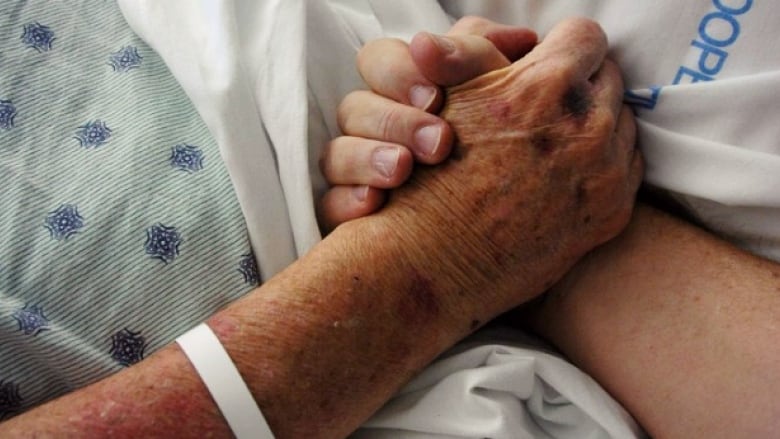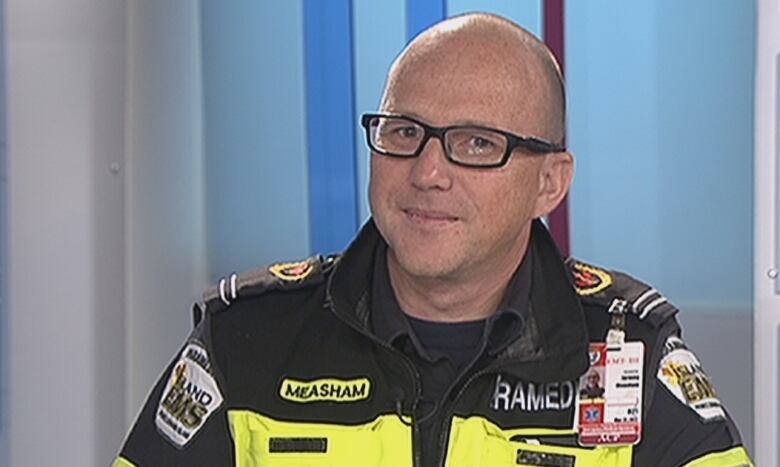5 things to know about P.E.I.'s new palliative care program
Paramedic shares his view on new program that sees Island EMS look after many palliative patients

A program that provides palliative care to Islanders in their homes is going very well, according to the paramedics who've been providing the service for the last seven months.
"We've been able to keep a lot of people at home who would rather live with their illnesses at home," said P.E.I. paramedic Jeremy Measham.
Measham, a 10-year-veteran of Island EMS, sat down with CBC News: Compass host Bruce Rainnie to talk about how the program works and why he thinks it's been so successful.
1. It's accessible
"Any time the palliative care team isn't available, 911 is there as an option, and we can come to your house and provide palliative care to you according to your established care plan," said Measham, noting it's available 24/7, and many of their calls are overnight.
Island EMS medics were trained by palliative care doctors, then those medics trained others over about one day, Measham said.

2. It's do-able
Paramedics have responded to about 100 palliative care calls since the program began in December, Measham said, characterizing the number as "quite high."
In about 40 per cent of those cases, Measham said, patients have been able to remain at home rather than being transported to hospital which is the program's goal.
3. Kinder, gentler calls
By nature, palliative care calls are less stressful, Measham said. Emergency calls require paramedics to enter a home quickly, sometimes moving furniture and cutting away clothing to stabilize a patient before moving them.
"We're notified before we arrive on scene that the person is part of the integrated palliative care program," Measham shared. "We come in with kid gloves and we keep a lot of our equipment outside."
4. Patients' wishes are heard
Paramedics "come into the home and then have a good discussion with the patient and their family about what their goals of care are, and what we can do for them on that day," Measham said.
"It's a different approach, it's patient-centred care," he added, noting paramedics must navigate both the patient's and the family's wishes.

5. Spared 'uncomfortable trip'
It's also a big change from the way Island EMS used to handle calls from people with a terminal or incurable illness which was just like any other emergency call.
"In the past we would have treated these patients and subjected them to what could be a very uncomfortable ride to the hospital," Measham said.
Now, they consultwith a doctor, formulate a care plan and the person can usually remain at home.
- MORE P.E.I. NEWS INDP support up on P.E.I., while other parties slip, poll indicates
- MORE P.E.I. NEWS ILoyd James Pilon ID'd as man killed in motorcycle crash
With files from Bruce Rainnie












_(720p).jpg)


 OFFICIAL HD MUSIC VIDEO.jpg)
.jpg)



























































































